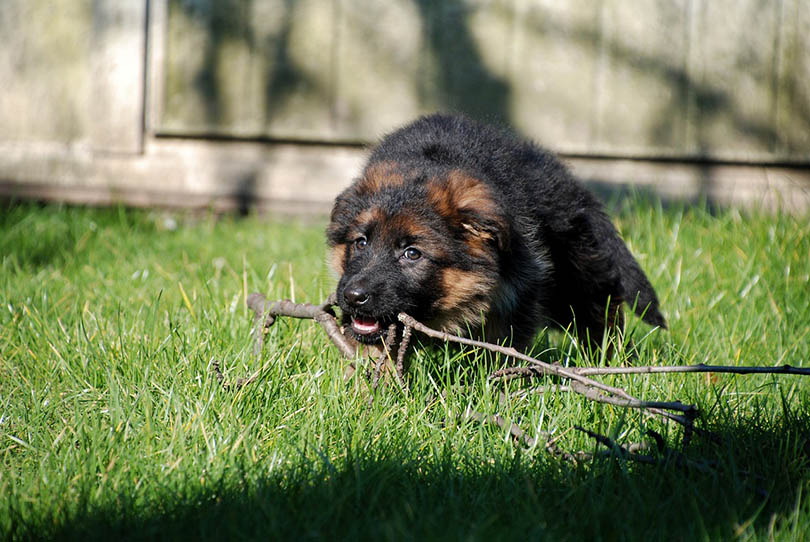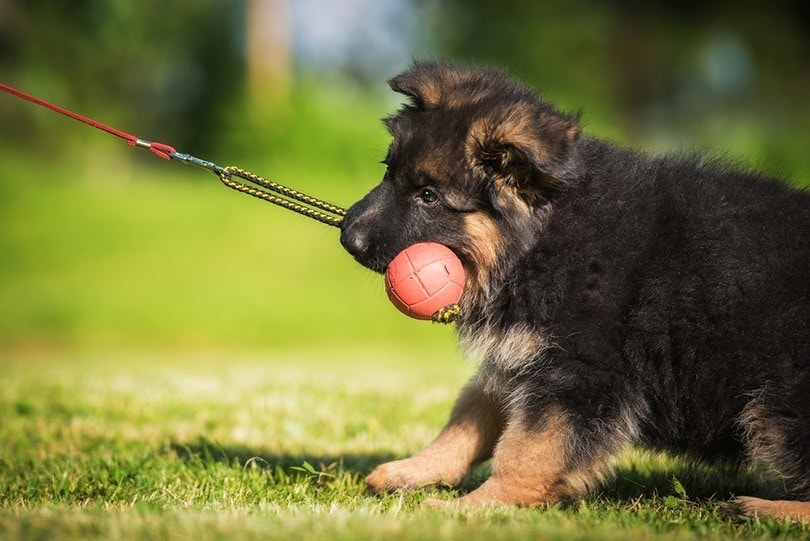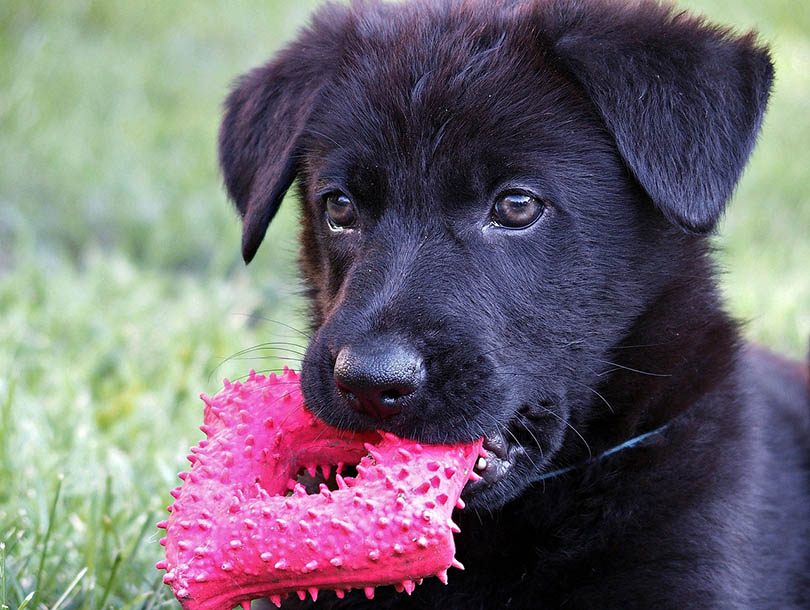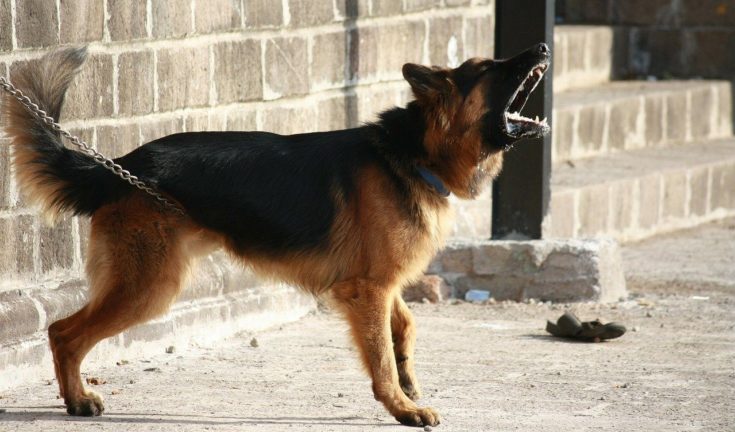When Do German Shepherd Puppies Stop Biting? Breed Facts & FAQs

Updated on

It’s a fact of life that puppies like to bite and chew, and German Shepherd puppies are notorious for it. However, just because it’s a common behavior doesn’t mean you have to accept it. German Shepherd puppies, like all puppies, go through a teething phase, and their biting behavior can continue until they are around 4 to 6 months old, when their adult teeth have fully grown in.
But how do you get German Shepherd puppies to stop biting, and when should you seek out more help? We dive into everything that you need to know here.
Why Do German Shepherd Puppies Bite?
There are two main reasons that your German Shepherd puppy might be biting, and if you don’t address either of them, chances are that you won’t ever notice any improvement.
The first reason they bite is that they’re playing and practicing their prey/hunting instincts. German Shepherds are herding dogs, and as such, they love to go after anything that moves. This could be cats, kids, hands, fingers, or just about anything else.
It’s important to realize that this is completely normal behavior, but it’s also something that will not go away on its own. When a German Shepherd is herding, they use biting to keep animals in line, and that’s exactly what they’re practicing as puppies.
The more they get away with it, the more acceptable the behavior seems in the future. Addressing the problem early and consistently is vital.
The second reason they might be biting is that they’re teething! Just like babies need something to chew on when their new teeth are coming in, your German Shepherd needs something too!
Of course, while they need the relief, it shouldn’t come at the expense of fingers, arms, legs, or furniture. But there’s good news about teething. First, it stops when they get their adult teeth. Second, if you try to redirect them to something that they can chew on, most German Shepherd puppies are receptive.

When to Expect Improvement
If your puppy is chewing because they’re teething, you should start to see improvement in their biting behavior around the 6-month mark. At this time, they should have all their adult teeth, which means no more teething to worry about.
Of course, if the problem has been their herding instinct all along, the 6-month mark won’t bring any relief. But at least you know the root of the problem and can start implementing the necessary strategies to address it.
Providing Your Puppy With Relief
If your puppy is teething, they need something to chew on. Their mouth hurts, and they’re just looking for pain relief. If you try to keep them from chewing on anything, they’ll just try to find a place where you can’t see them chewing.
Instead, get them a few chew toys, bones, and other acceptable things to chew on as they teethe. You can also throw a few of these toys in the fridge or freezer to cool them down, and this will offer even more relief for your pup when they need it!
Of course, you’ll need to keep an eye on them and take the toys out for them to use when they need them.

Training Techniques to Follow
Consistency is key with any training technique. While there are plenty of techniques to try, we recommend redirection and positive reinforcement.
The method is simple. When they start chewing on something that they shouldn’t, simply redirect them to an appropriate thing to chew on. If and when they start chewing on the toy or other appropriate object, give them praise.
Especially praise them if they go right for one of these objects and don’t need the redirection. German Shepherds love to please their owners, so this is typically an effective way to train your puppy.
You don’t need to yell at or otherwise punish your puppy for chewing in the wrong area. This can be detrimental to the training process because your puppy will start to try hiding the behavior, so you won’t be able to redirect as needed.
When to Be Concerned
While it’s not the end of the world if your puppy is chewing and nipping, it’s a problem that you want to work on remedying from the very first instance. Therefore, you should have levels of concern.
For the first 6 months, it’s perfectly normal for your puppy to chew and nip, but you need to redirect the behavior every time. If they are still chewing and nipping at the 9-month mark, you should seek obedience training or talk to a vet to see what you can do.
Conclusion
Some puppies love to chew more than others, but while it might be cute when they’re younger, it can quickly turn into a menace. And while it’s relatively easy to train a puppy to stop biting, once they reach full adulthood, it can be far more challenging and dangerous.
So, get on it early and often, and stick with it! Because with just a little work and dedication, you can get your German Shepherd puppy to stop biting in no time.
Featured Image Credit: AnjaGh, Pixabay











